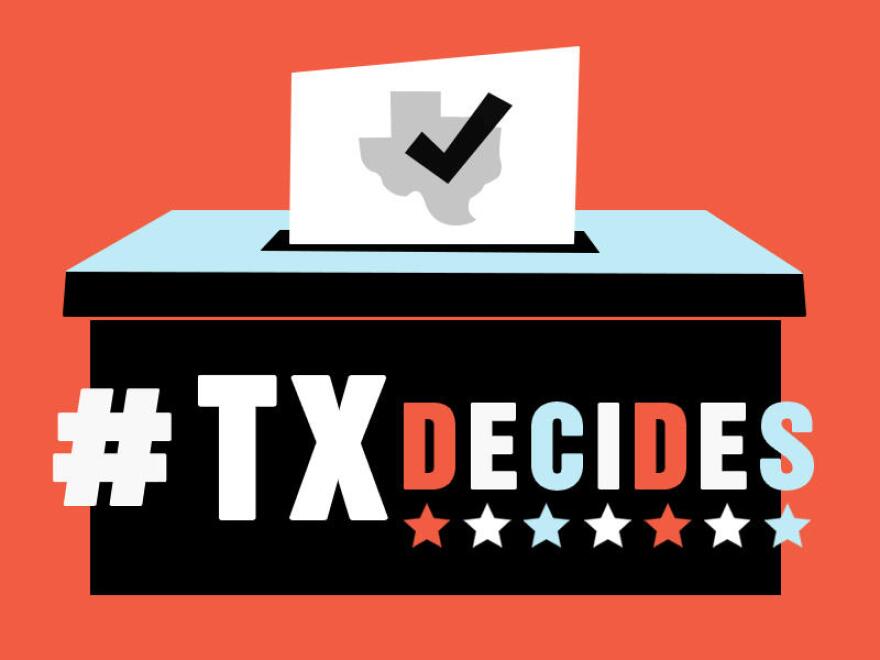Texans have the privilege of being able to vote for dozens and dozens of offices throughout state and local government. The whole country gets to elect a governor, but a justice of the peace? Not everyone has that honor.

And during the Republican and Democratic primaries in Texas, the number of choices voters have can make the ballot even longer. Once you finish voting for candidates, it’s on to ballot propositions. That’s how the parties zero in on their priorities for the fall.
The propositions’ curious wording and subject matter brought us a question for our TXDecides project. Eva asked:
The propositions listed on the ballot, some say "Should everyone in Texas have clean air?" What are they trying to get? Why ask that way?
I’ll start with the last question: Why ask that way? Because it’s a political question. Read the propositions out loud and you can hear that language being used to rally a crowd at a campaign event.
Here are a couple items from the GOP list, for example. Close your eyes, picture a large crowd at a politician’s campaign stop. The crowd is cheering, and then the candidate says this:
“No governmental entity should ever construct or fund construction of toll roads without voter approval!”
“I believe abortion should be abolished in Texas!”
Both of those questions are Republican propositions for the 2018 primary. I didn’t change any of the words, although I did add the exclamation points.
Democrats do the same thing.
Their propositions are framed a little differently; each one even comes with a title. Instead of being yelled at a rally, picture them as bullet points on a political mailer. You know, those giant glossy pages stuffed in your mailbox in the weeks before an election.
- Right to a 21st Century Public Education: Should everyone in Texas have the right to quality public education from pre-k to 12th grade, and affordable college and career training without the burden of crushing student loan debt?
- Right to Healthcare: Should everyone in Texas have a right to healthcare, guaranteed by a universal, quality Medicare-for-all system?
On to Eva’s first question: What are they trying to get?
The parties are trying to make sure they are being responsive to activists. Primary election turnout is much lower than in the November general election. So, that means the most involved, most supportive, most active people in each party are the ones picking candidates.
The propositions help those candidates and the party in general know which way the wind is blowing among that highly engaged population. To put it simply, each party is basically saying, “Hey, we’ve been pushing this topic for a few years. Do you still agree with us?”
Now all this may sound silly, but here’s a reason NOT to skip that part of the ballot. Despite what you might think, politicians will follow the masses. So, if you’re worried your party is going in the wrong direction, voting on the propositions is an initial step to let party leaders know.
You can see all the propositions, along with a list of every candidate on your personal ballot by going to vote411.org. There, you’ll also find candidate answers to a questionnaire sent out by the nonpartisan League of Women Voters.
There's still time to ask questions before the primaries. Send them to KUT’s TXDecides project.
_




